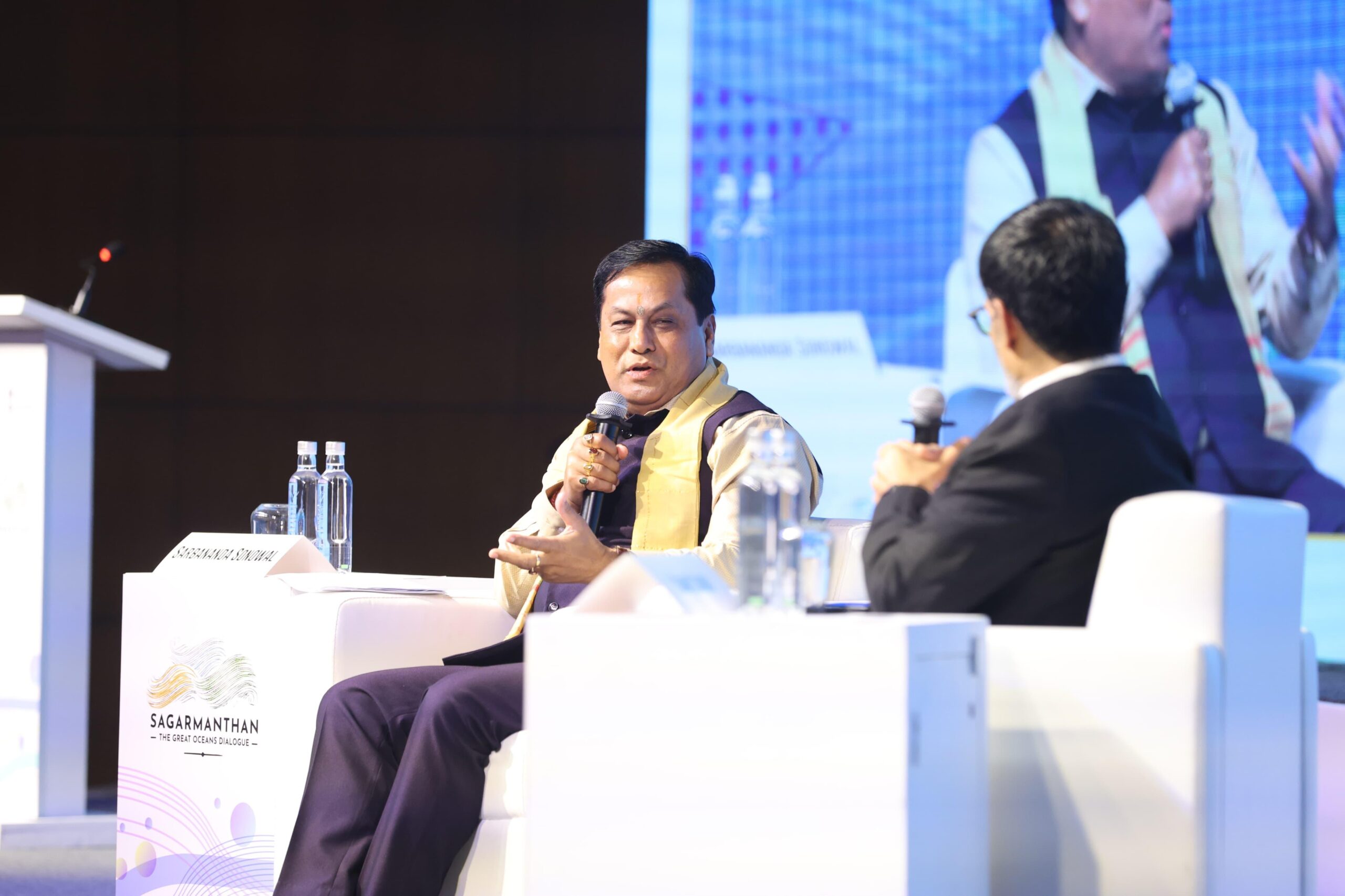Sagarmanthan – The Great Oceans Dialogue, an initiative by the Ministry of Ports, Shipping & Waterways (MoPSW) and the Observer Research Foundation (ORF), drew a successful closure here today. The sessions attempted discussions and examination of how partnerships can be developed and build upon.
The Prime Minister of India Narendra Modi shared his message on the successful organising of the maiden maritime event – Sagarmanthan, The Ocean’s Dialogue – being held at the national capital. PM Modi called for success of Sagarmanthan to build consensus for partnerships of a prosperous future of humanity.
In his message sent from Camp Office in Nigeria, the PM Modi shared, “Our vision for a free, open and secure maritime network – be it the Indian Ocean or the Indo Pacific region – is finding resonance across the world. The ‘Indo Pacific Oceans Initiative’ envisions marine resources as a key pillar for growth for nations. This dialogue on oceans further strengthen the rules-based world order and enhance peace, trust and friendship between nations. As we strive to realise the vision of a Viksit Bharat by 2047, dialogues such as Sagarmanthan are invaluable to build consensus, partnerships and most importantly, a prosperous future. With the collective efforts of all stakeholders, I am confident that these discussions will resonate far and wide, paving the way toward a brighter, more connected future.”
Sagarmanthan is South Asia’s largest maritime thought leadership forum. Organized by the Ministry of Ports, Shipping and Waterways (MoPSW) in partnership with the Observer Research Foundation (ORF), Sagarmanthan offers a premier platform for global leaders, policymakers, and visionaries to share insights and shape the future of the marine sector. With critical themes spanning the blue economy, global supply chains, maritime logistics, and sustainable growth, the dialogue aims to chart a bold, actionable course for a vibrant and future-ready maritime ecosystem.
During the one on one conversation, the Union Minister of Ports, Shipping & Waterways, Sarbananda Sonowal, said, “India has a vision of becoming a major maritime nation by 2030, as envisioned by the dynamic Prime Minister Shri Narendra Modi ji. With our sustained effort to infuse modernisation, digitisation and mechanisation of the sector, we have broken through the issues of inefficiency, which is a thing of past now. Given that India has the rich talent pool as well as resources to become a major shipbuilding nation, we are aiming to enter the Top 10 of ship building countries by 2030 while working our way to become world’s Top 5 by 2047 – a milestone key to realisation of the vision of PM Narendra Modi ji’s Atmanirbhar Bharat. We are also confident that the rich resource pool and a vibrant democratic set up will embolden our ports to handle 10,000 Million Tonnes of cargo by 2047.” These remark by the Minister at the inaugural session of the second day of Sagarmanthan set the tone. The conversation was conducted by Samir Saran, President, Observer Research Foundation (ORF).
The Union Minister also interacted with technical experts on creating a circular blue economy. While the session focused on sustainability at sea as priority, the discussion attempted to hedge solutions around its many challenges. Nadeem Nazurally, Associate Professor, University of Mauritius; Nancy Karigithu, Special Envoy and Advisor, Blue Economy, Executive Office of the President, Kenya; Nwabisa Matoti, Research Director, South African International Maritime Institute, South Africa; Oda Korneliussen, Programme Manager, Avfall Norge, Norway, Peter Aukamp, Senior Advisor, goodcarbon, Germany interacted with the Union Minister. The session was moderated by Catharina Frostad, Co-Founder, Clean Sea Solutions, Norway.
Sarbananda Sonowal further said, “Blue Economy is an important aspect of humanity’s evolution. It is important that global collaboration takes driver’s seat while domestic energy is revitalising our approach to the blue economy. This event is aimed at finding creative solutions and new policy directions that empower coastal communities and oceans based businesses. Sagarmanthan has given a start to identify pathways and secure supply chains through as much green energy as possible while working on effective partnerships between the local, the global and the corporate. Various aspects of maritime sector like shipbuilding, working conditions of seafarers bridging gender gap, financing future development, innovative solutions, strategies to rebuild resilience and prosperity along our coasts while developing new routes for newer resources were discussed at length here today. This has given us ample knowledge – the nectar of Sagarmanthan – which we will respectfully study and apply towards sustainable evolution of maritime sector.”

